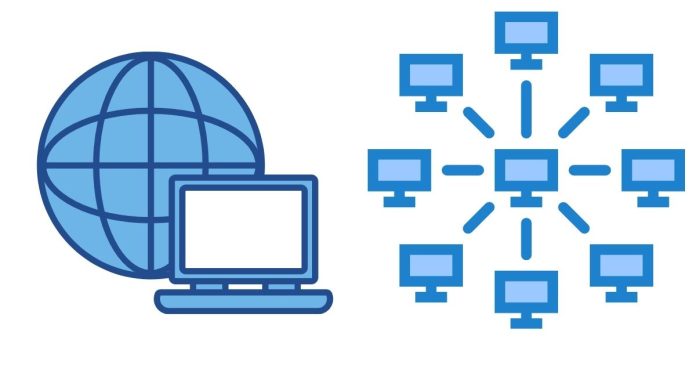Computer networks have become an integral part of our daily lives, transforming the way we communicate, work, and access information. They enable seamless data sharing, resource distribution, and real-time communication between devices and users. From personal use to global business operations, computer networks play a pivotal role in shaping the modern world. In this blog post, we’ll explore the diverse applications of computer networks across various domains.
What is a Computer Network?
A computer network is a collection of interconnected devices (computers, servers, printers, etc.) that share resources and information through communication protocols. Networks can range from small-scale setups like home networks to large-scale systems like the internet.
Key Applications of Computer Networks
1. Communication
Computer networks are at the heart of modern communication systems. They enable various modes of interaction, such as:
- Email: Instant exchange of messages and files.
- Video Conferencing: Platforms like Zoom and Microsoft Teams support remote meetings.
- Messaging Apps: Real-time text and voice communication via WhatsApp, Slack, etc.
2. Resource Sharing
Networks allow multiple users to share resources efficiently, reducing costs and improving productivity:
- Hardware Sharing: Printers, scanners, and storage devices can be shared across a network.
- Software Sharing: Applications can be installed on servers and accessed by multiple users.
3. File Sharing and Collaboration
Computer networks simplify sharing and collaboration on files and documents:
- Cloud services like Google Drive and Dropbox enable real-time editing and sharing.
- Version control systems like GitHub support collaborative software development.
4. E-Commerce
Computer networks have revolutionized the retail industry through e-commerce:
- Online shopping platforms like Amazon and eBay connect buyers and sellers worldwide.
- Payment gateways enable secure online transactions.
5. Education and E-Learning
Education has been transformed by computer networks, especially with the rise of e-learning:
- Online courses and learning platforms like Coursera and Khan Academy.
- Virtual classrooms and webinars enable remote learning.
6. Entertainment
From streaming to gaming, computer networks are central to modern entertainment:
- Video streaming platforms like Netflix, YouTube, and Disney+.
- Online multiplayer gaming through services like Xbox Live and PlayStation Network.
- Music streaming via Spotify and Apple Music.
7. Business and Enterprise Solutions
Organizations rely on networks for:
- Enterprise Resource Planning (ERP): Integration of business processes through networked systems.
- Customer Relationship Management (CRM): Efficient management of customer data.
- Data Backup and Recovery: Cloud-based storage for business continuity.
8. Healthcare
Computer networks have transformed healthcare delivery:
- Telemedicine enables remote diagnosis and treatment.
- Electronic Health Records (EHR) allow centralized patient data management.
- Medical research and drug development rely on high-speed networks for data analysis.
9. Banking and Financial Services
Banking has become more accessible and efficient due to computer networks:
- ATMs and online banking services provide 24/7 access.
- Stock trading and financial transactions are conducted in real time.
10. Government and Public Services
Networks streamline governance and public services:
- E-Governance platforms provide online access to government services.
- Public safety systems, such as emergency response coordination, rely on networks.
Advantages of Computer Networks in These Applications
- Speed and Efficiency: Real-time data transfer and communication.
- Cost-Effectiveness: Reduced hardware and software expenses through resource sharing.
- Scalability: Easy to expand as requirements grow.
- Global Connectivity: Bridging geographical gaps through seamless interaction.
Conclusion
The applications of computer networks are vast and continue to grow as technology advances. From personal use to industrial applications, networks have revolutionized every aspect of modern life. They not only enhance efficiency and productivity but also foster innovation and global connectivity.
As the backbone of the digital era, computer networks will continue to shape the future, driving new possibilities and solutions across industries. Whether in communication, healthcare, education, or entertainment, their impact is undeniable and indispensable.


